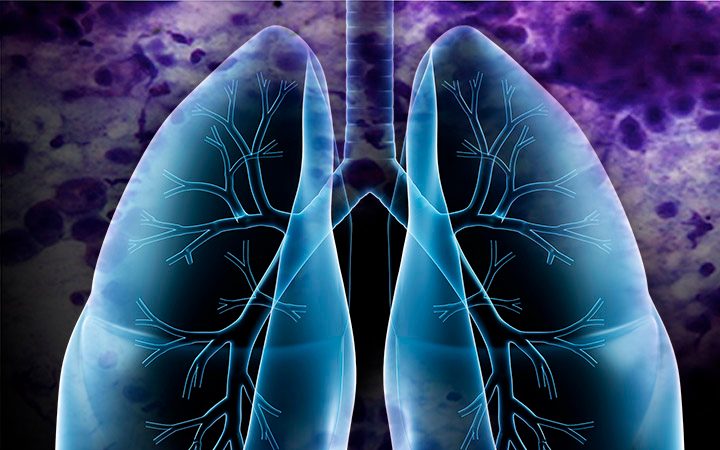- Diseases
- Acoustic Neuroma (14)
- Adrenal Gland Tumor (24)
- Anal Cancer (66)
- Anemia (2)
- Appendix Cancer (16)
- Bile Duct Cancer (28)
- Bladder Cancer (68)
- Brain Metastases (28)
- Brain Tumor (228)
- Breast Cancer (712)
- Breast Implant-Associated Anaplastic Large Cell Lymphoma (2)
- Cancer of Unknown Primary (4)
- Carcinoid Tumor (8)
- Cervical Cancer (154)
- Colon Cancer (164)
- Colorectal Cancer (110)
- Endocrine Tumor (4)
- Esophageal Cancer (42)
- Eye Cancer (36)
- Fallopian Tube Cancer (6)
- Germ Cell Tumor (4)
- Gestational Trophoblastic Disease (2)
- Head and Neck Cancer (6)
- Kidney Cancer (124)
- Leukemia (344)
- Liver Cancer (50)
- Lung Cancer (288)
- Lymphoma (284)
- Mesothelioma (14)
- Metastasis (30)
- Multiple Myeloma (98)
- Myelodysplastic Syndrome (60)
- Myeloproliferative Neoplasm (4)
- Neuroendocrine Tumors (16)
- Oral Cancer (98)
- Ovarian Cancer (172)
- Pancreatic Cancer (166)
- Parathyroid Disease (2)
- Penile Cancer (14)
- Pituitary Tumor (6)
- Prostate Cancer (144)
- Rectal Cancer (58)
- Renal Medullary Carcinoma (6)
- Salivary Gland Cancer (14)
- Sarcoma (234)
- Skin Cancer (294)
- Skull Base Tumors (56)
- Spinal Tumor (12)
- Stomach Cancer (60)
- Testicular Cancer (28)
- Throat Cancer (90)
- Thymoma (6)
- Thyroid Cancer (98)
- Tonsil Cancer (30)
- Uterine Cancer (78)
- Vaginal Cancer (14)
- Vulvar Cancer (18)
- Cancer Topic
- Adolescent and Young Adult Cancer Issues (20)
- Advance Care Planning (10)
- Biostatistics (2)
- Blood Donation (18)
- Bone Health (8)
- COVID-19 (362)
- Cancer Recurrence (120)
- Childhood Cancer Issues (120)
- Clinical Trials (622)
- Complementary Integrative Medicine (22)
- Cytogenetics (2)
- DNA Methylation (4)
- Diagnosis (224)
- Epigenetics (6)
- Fertility (62)
- Follow-up Guidelines (2)
- Health Disparities (14)
- Hereditary Cancer Syndromes (122)
- Immunology (18)
- Li-Fraumeni Syndrome (8)
- Mental Health (116)
- Molecular Diagnostics (8)
- Pain Management (64)
- Palliative Care (8)
- Pathology (10)
- Physical Therapy (18)
- Pregnancy (18)
- Prevention (882)
- Research (384)
- Second Opinion (74)
- Sexuality (16)
- Side Effects (598)
- Sleep Disorders (10)
- Stem Cell Transplantation Cellular Therapy (216)
- Support (404)
- Survivorship (324)
- Symptoms (182)
- Treatment (1764)
A new way to kill lung cancer with little collateral damage
BY Ron Gilmore
2 minute read | Published March 08, 2017
Medically Reviewed | Last reviewed by an MD Anderson Cancer Center medical professional on March 08, 2017

Next-generation cyclin dependent kinase 2/9 (CDK2/9) inhibitors offer a new way to kill lung cancer while doing minimal harm to normal cells, according to a study by researchers at MD Anderson Cancer Center. The examined inhibitors were effective in stopping the growth of lung cancer by targeting anaphase catastrophe. This was observed when cancer cells with extra centrosomes fail to cluster the excessive centrosomes during cell division, leading to cancer cell death.
One of these highly active anti-cancer agents was CCT68127, a pre-clinical stage CDK2/9 inhibitor developed by Cyclacel Pharmaceuticals, Inc. It offers an innovative approach to combating aneuploid cancer cells — those that contain abnormal numbers of chromosomes. Aneuploidy is a hallmark for cancer development, occurring in almost every cancer, but especially prevalent in lung cancer. About 90% of cancer cells in solid tumors and blood cancer are aneuploid.
Study findings were replicated using Cyclacel’s clinical stage next-generation CDK2/9 inhibitor, CYC065, and were published in the Feb. 10 online issue of the Journal of the National Cancer Institute (JNCI).
“CCT68127 showed anti-neoplastic effects in lung cancer cells from mice and humans, including those that result from the KRAS mutation, which represent an unmet medical need,” said Masanori Kawakami, M.D., Ph.D., postdoctoral fellow in Thoracic/Head and Neck Medical Oncology, and the first author on the JNCI paper. “Anaphase catastrophe spares normal cells that aren’t aneuploid, and the study provided the promising prospect of minimal side effects in mice, a finding that can be exploited in the cancer clinic.”
The drug inhibited growth up to 88.5% and induced cell death up to 43% in lung cancer cells through anaphase catastrophe, with minimal effects on control healthy cells. The study also revealed the cancer-causing gene KRAS’s sensitivity to CCT68127.
Cyclacel’s CCT68127 and CYC065 are new members of a class of drugs that inhibit cyclin dependent kinase proteins, which play a critical role in regulating the cell cycle and have been linked to tumor development. The development of small-molecule inhibitors of CDKs as a method for cancer chemotherapy resulted in the introduction of CYC202, Cyclacel’s first-generation CDK inhibitor. CCT68127 and CYC065, currently in a Phase I study, are the next-generation drugs being developed in the line of CDK cancer therapy inhibitors.
“Lung cancer is the most common cause of cancer-related mortality,” said Ethan Dmitrovsky, M.D., executive vice president and provost, and senior author of the JNCI paper. “Despite current treatments, the five-year survival rate of late-stage lung cancer is less than 20 percent. This next-generation CDK study holds promise for future clinical studies of this novel class of agents.”
Read more about this research in the MD Anderson Newsroom.
The drug inhibited growth up to 88.5% and induced cell death up to 43% in lung cancer cells through anaphase catastrophe, with minimal effects on control healthy cells.
